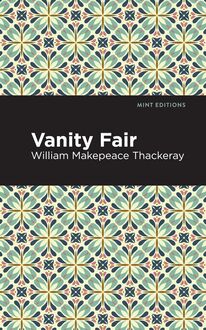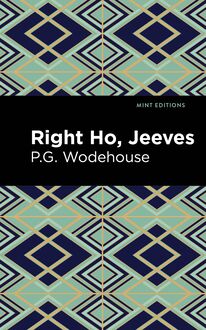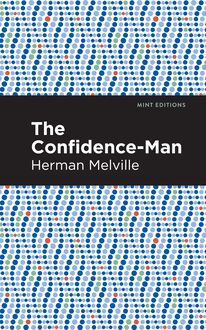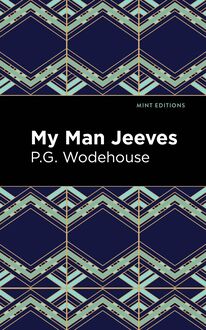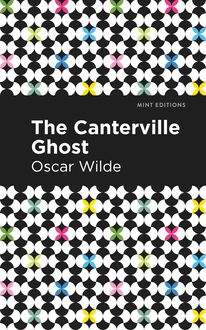-
 Univers
Univers
-
 Ebooks
Ebooks
-
 Livres audio
Livres audio
-
 Presse
Presse
-
 Podcasts
Podcasts
-
 BD
BD
-
 Documents
Documents
-
- Cours
- Révisions
- Ressources pédagogiques
- Sciences de l’éducation
- Manuels scolaires
- Langues
- Travaux de classe
- Annales de BEP
- Etudes supérieures
- Maternelle et primaire
- Fiches de lecture
- Orientation scolaire
- Méthodologie
- Corrigés de devoir
- Annales d’examens et concours
- Annales du bac
- Annales du brevet
- Rapports de stage
La lecture à portée de main

Vous pourrez modifier la taille du texte de cet ouvrage
Découvre YouScribe en t'inscrivant gratuitement
Je m'inscrisDécouvre YouScribe en t'inscrivant gratuitement
Je m'inscrisEn savoir plus
Vous pourrez modifier la taille du texte de cet ouvrage
En savoir plus

Description
Featuring twelve simple yet profound essays, Jerome K. Jerome’s Second Thoughts of an Idle Fellow is a humorous and clever collection. Each essay is crafted around a timeless and relatable issue, such as the unfortunately common inability to make decisions. On the Art of Making Up One’s Mind observes this to be a common practice. Beginning with the story of a young woman who cannot decide what color of garment to buy, this essay takes notice of the everyday day occurrences of this struggle, comparing the experience for men and women. As a common theme in the collection, societal expectations and assumptions about gender play a main role in many of the essays, tackling topics such as relationships and dating. However, other essays focus on the universal experience of being human, separate from implications of gender. This is portrayed in On the Exceptional Merit Attaching to the Things We Meant to Do through the narrative of a failed craft. Despite shortcomings, pride always finds a way to warp reality, which is why Jerome ironically warns against taking advice in the essay On the Inadvisability of Following Advice. With discussions of pride, intention, vices, and ideals, Second Thoughts of an Idle Fellow addresses the truths of topics that are simultaneously overlooked, yet universally experienced.
With satirical prose and thoughtful reflection, Jerome K. Jerome combines humor and sentiment in Second Thoughts of an Idle Fellow, presenting serious topics without intimidation, inviting thought and laughter. Though first published over one-hundred years ago in 1898, Second Thoughts of an Idle Fellow feature timeless and universal themes and realizations that remain to be clever and relevant to modern-day society.
This edition of Second Thoughts of an Idle Fellow by Jerome K. Jerome is presented in an easy-to-read font and features an eye-catching new cover design. With these accommodations, this edition is accessible and appealing to contemporary audiences, restoring Jerome K Jerome’s work to modern standards while preserving the original wit and charm of Second Thoughts of an Idle Fellow.
Sujets
Informations
| Publié par | Mint Editions |
| Date de parution | 09 mars 2021 |
| Nombre de lectures | 0 |
| EAN13 | 9781513279015 |
| Langue | English |
| Poids de l'ouvrage | 1 Mo |
Informations légales : prix de location à la page 0,0450€. Cette information est donnée uniquement à titre indicatif conformément à la législation en vigueur.
Extrait
The Second Thoughts of an Idle Fellow
Jerome K. Jerome
The Second Thoughts of an Idle Fellow was first published in 1898.
This edition published by Mint Editions 2021.
ISBN 9781513278551 | E-ISBN 9781513279015
Published by Mint Editions®
minteditionbooks .com
Publishing Director: Jennifer Newens
Design & Production: Rachel Lopez Metzger
Project Manager: Micaela Clark
Typesetting: Westchester Publishing Services
C ONTENTS O N THE A RT OF M AKING U P O NE’S M IND O N THE D ISADVANTAGE OF N OT G ETTING W HAT O NE W ANTS O N THE E XCEPTIONAL M ERIT ATTACHING TO THE T HINGS W E M EANT T O D O O N THE P REPARATION AND E MPLOYMENT OF L OVE P HILTRES O N THE D ELIGHTS AND B ENEFITS OF S LAVERY O N THE C ARE AND M ANAGEMENT OF W OMEN O N THE M INDING OF O THER P EOPLE’S B USINESS O N THE T IME W ASTED IN L OOKING B EFORE O NE L EAPS O N THE N OBILITY OF O URSELVES O N THE M OTHERLINESS OF M AN O N THE I NADVISABILITY OF F OLLOWING A DVICE O N THE P LAYING OF M ARCHES AT THE F UNERALS OF M ARIONETTES
O N THE A RT OF M AKING U P O NE’S M IND
“Now, which would you advise, dear? You see, with the red I shan’t be able to wear my magenta hat.”
“Well then, why not have the grey?”
“Yes—yes, I think the grey will be more useful .”
“It’s a good material.”
“Yes, and it’s a pretty grey. You know what I mean, dear; not a common grey. Of course grey is always an uninteresting colour.”
“It’s quiet.”
“And then again, what I feel about the red is that it is so warm-looking. Red makes you feel warm even when you’re not warm. You know what I mean, dear!”
“Well then, why not have the red? It suits you—red.”
“No; do you really think so?”
“Well, when you’ve got a colour, I mean, of course!”
“Yes, that is the drawback to red. No, I think, on the whole, the grey is safer .”
“Then you will take the grey, madam?”
“Yes, I think I’d better; don’t you, dear?”
“I like it myself very much.”
“And it is good wearing stuff. I shall have it trimmed with— Oh! you haven’t cut it off, have you?”
“I was just about to, madam.”
“Well, don’t for a moment. Just let me have another look at the red. You see, dear, it has just occurred to me—that chinchilla would look so well on the red!”
“So it would, dear!”
“And, you see, I’ve got the chinchilla.”
“Then have the red. Why not?”
“Well, there is the hat I’m thinking of.”
“You haven’t anything else you could wear with that?”
“Nothing at all, and it would go so beautifully with the grey.—Yes, I think I’ll have the grey. It’s always a safe colour—grey.”
“Fourteen yards I think you said, madam?”
“Yes, fourteen yards will be enough; because I shall mix it with—One minute. You see, dear, if I take the grey I shall have nothing to wear with my black jacket.”
“Won’t it go with grey?”
“Not well—not so well as with red.”
“I should have the red then. You evidently fancy it yourself.”
“No, personally I prefer the grey. But then one must think of everything , and—Good gracious! that’s surely not the right time?”
“No, madam, it’s ten minutes slow. We always keep our clocks a little slow!”
“And we were too have been at Madame Jannaway’s at a quarter past twelve. How long shopping does take! Why, whatever time did we start?”
“About eleven, wasn’t it?”
“Half-past ten. I remember now; because, you know, we said we’d start at half-past nine. We’ve been two hours already!”
“And we don’t seem to have done much, do we?”
“Done literally nothing, and I meant to have done so much. I must go to Madame Jannaway’s. Have you got my purse, dear? Oh, it’s all right, I’ve got it.”
“Well, now you haven’t decided whether you’re going to have the grey or the red.”
“I’m sure I don’t know what I do want now. I had made up my mind a minute ago, and now it’s all gone again—oh yes, I remember, the red. Yes, I’ll have the red. No, I don’t mean the red, I mean the grey.”
“You were talking about the red last time, if you remember, dear.”
“Oh, so I was, you’re quite right. That’s the worst of shopping. Do you know I get quite confused sometimes.”
“Then you will decide on the red, madam?”
“Yes—yes, I shan’t do any better, shall I, dear? What do you think? You haven’t got any other shades of red, have you? This is such an ugly red.”
The shopman reminds her that she has seen all the other reds, and that this is the particular shade she selected and admired.
“Oh, very well,” she replies, with the air of one from whom all earthly cares are falling, “I must take that then, I suppose. I can’t be worried about it any longer. I’ve wasted half the morning already.”
Outside she recollects three insuperable objections to the red, and four unanswerable arguments why she should have selected the grey. She wonders would they change it, if she went back and asked to see the shop-walker? Her friend, who wants her lunch, thinks not.
“That is what I hate about shopping,” she says. “One never has time to really think .”
She says she shan’t go to that shop again.
We laugh at her, but are we so very much better? Come, my superior male friend, have you never stood, amid your wardrobe, undecided whether, in her eyes, you would appear more imposing, clad in the rough tweed suit that so admirably displays your broad shoulders; or in the orthodox black frock, that, after all, is perhaps more suitable to the figure of a man approaching—let us say, the nine-and-twenties? Or, better still, why not riding costume? Did we not hear her say how well Jones looked in his top-boots and breeches, and, “hang it all,” we have a better leg than Jones. What a pity riding-breeches are made so baggy nowadays. Why is it that male fashions tend more and more to hide the male leg? As women have become less and less ashamed of theirs, we have become more and more reticent of ours. Why are the silken hose, the tight-fitting pantaloons, the neat kneebreeches of our forefathers impossible to-day? Are we grown more modest—or has there come about a falling off, rendering concealment advisable?
I can never understand, myself, why women love us. It must be our honest worth, our sterling merit, that attracts them—certainly not our appearance, in a pair of tweed “dittos,” black angora coat and vest, stand-up collar, and chimney-pot hat! No, it must be our sheer force of character that compels their admiration.
What a good time our ancestors must have had was borne in upon me when, on one occasion, I appeared in character at a fancy dress ball. What I represented I am unable to say, and I don’t particularly care. I only know it was something military. I also remember that the costume was two sizes too small for me in the chest, and thereabouts; and three sizes too large for me in the hat. I padded the hat, and dined in the middle of the day off a chop and half a glass of soda-water. I have gained prizes as a boy for mathematics, also for scripture history—not often, but I have done it. A literary critic, now dead, once praised a book of mine. I know there have been occasions when my conduct has won the approbation of good men; but never—never in my whole life, have I felt more proud, more satisfied with myself than on that evening when, the last hook fastened, I gazed at my full-length Self in the cheval glass. I was a dream. I say it who should not; but I am not the only one who said it. I was a glittering dream. The groundwork was red, trimmed with gold braid wherever there was room for gold braid; and where there was no more possible room for gold braid there hung gold cords, and tassels, and straps. Gold buttons and buckles fastened me, gold embroidered belts and sashes caressed me, white horse-hair plumes waved o’er me. I am not sure that everything was in its proper place, but I managed to get everything on somehow, and I looked well. It suited me. My success was a revelation to me of female human nature. Girls who had hitherto been cold and distant gathered round me, timidly solicitous of notice. Girls on whom I smiled lost their heads and gave themselves airs. Girls who were not introduced to me sulked and were rude to girls that had been. For one poor child, with whom I sat out two dances (at least she sat, while I stood gracefully beside her—I had been advised, by the costumier, not to sit), I was sorry. He was a worthy young fellow, the son of a cotton broker, and he would have made her a good husband, I feel sure. But he was foolish to come as a beer-bottle.
Perhaps, after all, it is as well those old fashions have gone out. A week in that suit might have impaired my natural modesty.
One wonders that fancy dress balls are not more popular in this grey age of ours. The childish instinct to “dress up,” to “make believe,” is with us all. We grow so tired of being always ourselves. A tea-table discussion, at which I once assisted, fell into this—Would any one of us, when it came to the point, change with anybody else, the poor man with the millionaire, the governess with the princess—change not only outward circumstances and surroundings, but health and temperament, heart, brain, and soul; so that not one mental or physical particle of one’s original self one would retain, save only memory? The general opinion was that we would not, but one lady maintained the affirmative.
“Oh no, you wouldn’t really, dear,” argued a friend; “you think you would.”
“Yes, I would,” persisted the first lady; “I am tired of myself. I’d even be you, for a change.”
In my youth, the question chiefly important to me was—What sort of man shall I decide to be? At nineteen one asks oneself this question; at thirty-nine we say, “I wish Fate hadn’t made me this sort of man.”
In those days I was a reader of much well-meant advice to young men, and I gathered that, whether I should become a Sir Lancelot, a Herr Teufelsdrockh, or an Iago was a matter for my own individual choice. Whether I should go through life gaily or gravely was a question the pros and cons of which I carefully considered. For patterns I turned to books. Byron was then still popu
Attention
En entrant sur cette page, vous certifiez :
- 1. avoir atteint l'âge légal de majorité de votre pays de résidence.
- 2. avoir pris connaissance du caractère érotique de ce document.
- 3. vous engager à ne pas diffuser le contenu de ce document.
- 4. consulter ce document à titre purement personnel en n'impliquant aucune société ou organisme d'État.
- 5. vous engager à mettre en oeuvre tous les moyens existants à ce jour pour empêcher n'importe quel mineur d'accéder à ce document.
- 6. déclarer n'être choqué(e) par aucun type de sexualité.
YouScribe ne pourra pas être tenu responsable en cas de non-respect des points précédemment énumérés. Bonne lecture !
-
 Univers
Univers
-
 Ebooks
Ebooks
-
 Livres audio
Livres audio
-
 Presse
Presse
-
 Podcasts
Podcasts
-
 BD
BD
-
 Documents
Documents
-
Jeunesse
-
Littérature
-
Ressources professionnelles
-
Santé et bien-être
-
Savoirs
-
Education
-
Loisirs et hobbies
-
Art, musique et cinéma
-
Actualité et débat de société
-
Jeunesse
-
Littérature
-
Ressources professionnelles
-
Santé et bien-être
-
Savoirs
-
Education
-
Loisirs et hobbies
-
Art, musique et cinéma
-
Actualité et débat de société
-
Actualités
-
Lifestyle
-
Presse jeunesse
-
Presse professionnelle
-
Pratique
-
Presse sportive
-
Presse internationale
-
Culture & Médias
-
Action et Aventures
-
Science-fiction et Fantasy
-
Société
-
Jeunesse
-
Littérature
-
Ressources professionnelles
-
Santé et bien-être
-
Savoirs
-
Education
-
Loisirs et hobbies
-
Art, musique et cinéma
-
Actualité et débat de société
- Cours
- Révisions
- Ressources pédagogiques
- Sciences de l’éducation
- Manuels scolaires
- Langues
- Travaux de classe
- Annales de BEP
- Etudes supérieures
- Maternelle et primaire
- Fiches de lecture
- Orientation scolaire
- Méthodologie
- Corrigés de devoir
- Annales d’examens et concours
- Annales du bac
- Annales du brevet
- Rapports de stage

